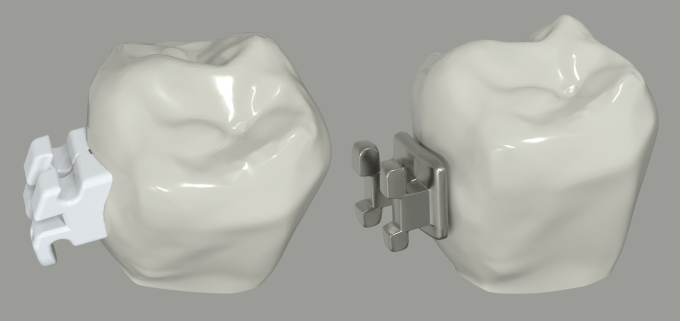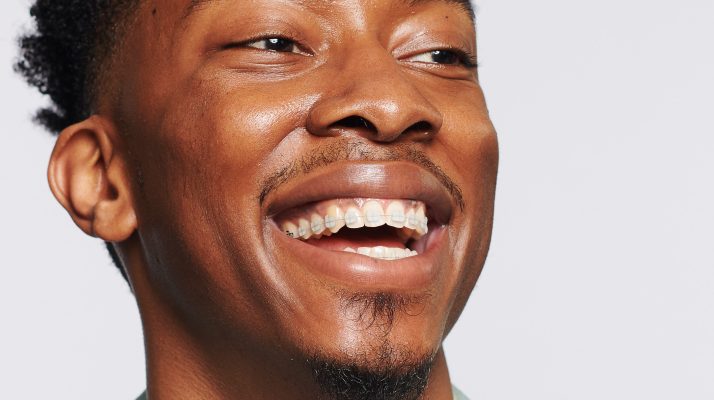Everyone’s set of teeth are different enough that orthodontics has traditionally been part artistry, part medical witchcraft. In the late 1990s, Invisalign changed the industry with customizable aligners, but it turns out that aligners only serve 30% of orthodontics patients. For the rest, there hasn’t been much in the way of innovation — until LightForce came along and shook things up. With the snappy slogan “one size fits one”, LightForce Orthodontics creates custom, 3D-printed brackets and placement trays for braces. In this case, more custom means better: Patients enjoy shorter treatment times, and orthodontists are able to offer tooth movement treatment plans with incredible precision — down to a thousandth of a millimeter.
LightForce Orthodontics has seen stratospheric growth over the past year — 500% revenue growth, while the team grew by 300%. Investors paid attention, and one investor, in particular, wanted to get its fangs into the company and place itself on the cap table. Kleiner Perkins cut its teeth in the business of orthodontics 25 years ago, making a boatload of money from its investment in Invisalign. They are back for another bite of the apple, leading the $50 million Series C round into LightForce, with participation from the company’s past investors, including Matrix Partners, Tyche Partners and AM Ventures.
“One thing we talk about all the time here at this company is that we put patients first in every decision we make. Everything we do always goes to the lens of ‘is it the best thing for the patient’. Even our all-hands start with a patient: how did we help somebody? The market we are really unlocking is the teen and adolescent market, which represents 75% of all cases in the U.S. Think about adolescent psychology: that’s when kids are forming their sense of self,” explains CEO and co-founder of LightForce, Dr. Alfred Griffin III, DMD, PhD, MMSc, who still practices as an orthodontist four days per month. “I can’t tell you how many cases I’ve seen personally as an orthodontist, where mom will come in and say ‘my son gets teased’ for this or for that. With LightForce, we can help that patient faster and reduce the number of appointments and reduce the amount of time they have to be out of school. We get them to a better result by leveraging technology.”
The company previously raised a $14 million Series B round just over a year ago, and wasn’t in the market for more money just yet, but when Kleiner Perkins came knocking, LightForce decided to take the call and see if there was a deal to be made.

LightForce’s custom bracket (left) can be placed and aligned with sub-millimeter precision, in addition to being the right shape for the tooth. A traditional bracket is shown on the right. Image Credits: LightForce Orthodontics
“We raised a little bit earlier than we had planned. There were some very well-known VCs that were keeping tabs on us that had seen us in the past, but we were a bit too early for them. Kleiner Perkins was always one that was on my mind, as one that I would love to work with — especially with Wen Hsieh himself. He has a deep background in 3D printing and hard tech. He’s done a lot of the best hard-tech deals,” explains Griffin. “Kleiner Perkins is one of the only venture capital groups that has done anything significant in orthodontics. It was 20 years ago, but Align Technology changed orthodontics, for the better in my opinion. Two value props came out of Align Technology. One was the aesthetic benefits, which unlocked the adult segment. The second thing is the digital nature of what they do.”
“A lot of these innovations come from people who are not from the industry,” says Wen Hsieh, the partner at Kleiner Perkins who led the investment. “Alfred is an orthodontist himself, and it has made a world of difference. Because he’s a doctor himself, he already knows where to insert into their workflow. What part of their normal workflow is eliminated, what part is enhanced, how they can spend more or less time, how it impacts the dental tech, how it impacts the footprint of the office, how it impacts how often the patient has to come in, and so on. Meanwhile, Alfred is taking in the knowledge from other areas, such as from simulation and from 3D printing.”
If you’re sitting here scratching your head about why people can’t just use Invisalign and be done with it… I had a very similar question. It turns out that aligners can only push, not pull. Pulling teeth down to align with other teeth is something braces are great for, but aligners aren’t able to accomplish. The other aspect is compliance: Aligners have to be worn 22 hours per day, and, well, people just aren’t very good at that. As Griffin points out: “Mom isn’t going to get mad at their teenager if the treatment is going too slowly. They’ll both blame the orthodontist.”

The LightForce brackets are 3D-printed, and so are the trays they come in. This enables orthodontists to place the brackets exactly where they need to go on the teeth. The new brackets are semi-translucent, which means they appear to be the same color as the teeth, leaving them much less visible. Image Credits: LightForce Orthodontics
This investment is good news for teeth-havers, but it’s also great news for 3D printing fans. Orthodontics is one of the world’s biggest commercial users of 3D printing technology — Invisalign is currently the world’s biggest 3D printing company — and that trend isn’t going to change as LightForce now has the bank balance to go and buy a godawful number of printers themselves.
With the $50 million cash-injection into the company’s war chest, the battle for the braces can commence in earnest. The new funds will help scale LightForce operations and go-to-market efforts to enable more orthodontic practices around the country to combine the digital benefits seen with aligner therapy with the tooth-moving efficiency and quality outcomes seen with braces. It’s going to be an exciting, but complex journey: Scaling an operation where every set of hybrid ceramic braces is custom-printed for each client is fantastically challenging both logistically and operationally.
“Scaling, mass customization is a very unique problem that most talk about in theory, but very few have dealt with in practicality,” admits Griffin. “There’s around 200 of us in the company right now, and we will probably double that over the next year. Sales and engineering are probably going to be the biggest expenses, but in terms of headcount, we will need to grow the most in manufacturing technicians, both in terms of physical and digital manufacturing.”
Credit: Source link


Comments are closed.